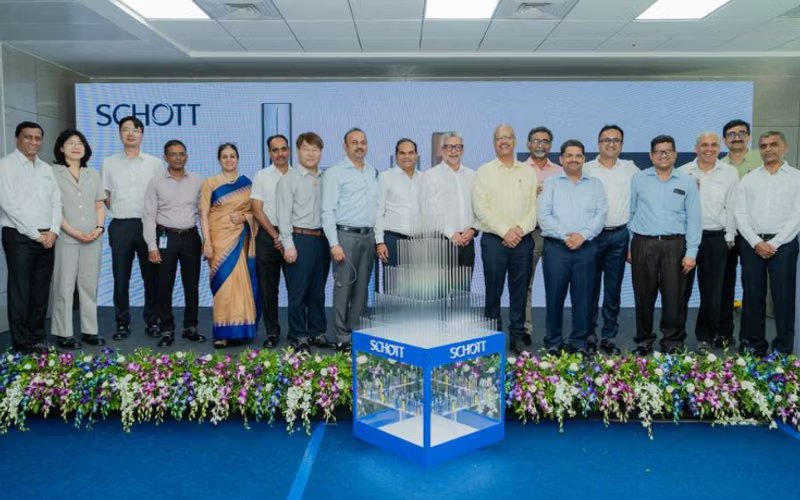Schott Launches Syringe and Cartridge Glass Tubing in India

Image Credits: WhatPackaging
Schott is the first in India to locally manufacture glass tubing for cartridges and syringes in its production facility in Jambusar, Gujarat. Schott has declared the totaling of cartridge and syringe glass tubing to its present producing competencies in Jambusar in Gujarat. This inscription is a milestone in India’s glass main pharmaceutical packaging scene.
The manufacture will show direct technology transmission from Schott’s German proficiency. It is set to fulfil the demand for biologics such as semaglutide, utilized for weight management and regulator of blood sugar levels in patients with type 2 diabetes. As per specialists, the glucagon-like peptide-1 (GLP-1) section is anticipated to observe a CAGR of 33%.
According to Schott, the detailed inner diameter acceptance of syringe glass tubing can safeguard plunger tightness and reliable gliding services on the inner surface of the complete length throughout the management of the drug. Schott’s Type I borosilicate glass tubing, Fiolax, which has thick walls and fitted geometric accuracy and acceptance, making it suitable for prefillable cartridges and syringes.
The presentation of the positions of Schott in India to supply all glass primary packaging requirements of the pharmaceutical sector, comprising glass tubing for syringes, vials, ampoules, and cartridges.
After closely to ten days of discussions, representatives from more than 180 countries were unsuccessful in reaching a consent on the possibility and desire of the planned agreement, leaving the future of the agreement uncertain.
This hindrance comes against a background of intensifying ecological crises and declining confidence in international authority. Worldwide plastic production is anticipated to increase by 70% by 2040 if left unimpeded, with less than 10% presently being recycled and enormous volumes contaminating the air, land, and water.
The collapse centred on incompatible rifts between the two main blocs. Over 100 nations, comprising those in Switzerland, the European Union, and much of the Global South, were boosting measures to address the complete life cycle of plastics. Their suggestions comprised legally compulsory limits on plastic manufacture and controls on dangerous chemicals utilized in plastics.
Though an alliance of oil-producing states, led by Saudi Arabia and Russia and combined with numerous others, strongly battled moves to ban plastics. They coped in favour of prioritising recycling, reusing, and redesigning plastics as a replacement for, rejecting any limitations on production or compulsory commitments.
Top Stories
- A Simple Guide to Understanding Benefits of Rigid Boxes
- A Packaging Guide for Artisanal and Handmade Product Brand
- UFLEX Expands PET Recyclable Woven Polypropylene Food Packaging to Mexico
- Tetra Pak Launches India’s First Carton Packaging with Certified Recycled Polymers
- PepsiCo Reinforces pep+ Strategy with Sustainable Packaging Goals
